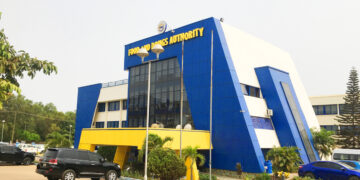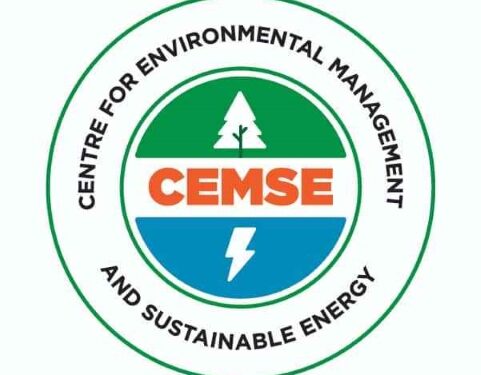A research and policy advocacy organization on the Energy Sector in Ghana is calling on the government to reconsider its pricing measures on Liquified Petroleum Gas (LPG) to enable Ghana make progress on its clean energy transition targets.
CEMSE’s call is for the consumption of LPG mainly in the transport sector which plays a crucial role in the emissions of Carbon dioxide (CO2). Liquefied Petroleum Gas (Butane or Propane) is the cleanest and safest source of energy for the transport sector compared to gasoil (diesel) and gasoline (petrol).
It is believed that ‘the usage of LPG, a green energy by the transport sector, can reduce the emission of Carbon Dioxide (CO2) into the atmosphere by about 15% compared to other fossil fuel used by the transport sector.
However, this target may not be met due, in part, to the high cost of LPG. CEMSE is suggesting that ‘the recent introduction of US$80/MT on the Price Build UP (PBU) of LPG by the Ministry of Energy and the National Petroleum Authority (NPA) established by LI 2481 amidst global price hikes of LPG negatively affects the transport sectors usage of LPG’.
In a statement, CEMSE indicated that “the new PBU introduced since April 1, 2024 has made LPG in Ghana, the most expensive petroleum products far more expensive compared to diesel and petrol. As at the second window of June, 2024, the average price of LPG was Ghc16/kg while the average price of diesel was about Ghc14.25/L and average price of petrol around Ghc14/L”, added in the statement.

Benjamin Nsia, Executive Director, Centre for Environmental Management and Sustainable Energy (CEMSE)
For that matter, the research outfit claimed ‘the recent hikes in prices caused by NPA is shifting many LPG vehicle users into the use of unclean fossil fuels for their ICEs, and that inversely affects Ghana’s effort of achieving Nationally Determined Contributions (NDCs) for the clean energy transition’.
Consequently, CEMSE has proposed that the government and NPA ‘suspend the charging of US$80/MT at the LPG filling stations to make LPG affordable for vehicle users’ and that ‘The US$80/MT should be directed towards the exchange points where Cylinder investment and Bottling is needed to implement the CRM’.
Find attached the full statement:
1 st July, 2024
LPG PRICE SURGE STALLS GHANA’S CLEAN ENERGY USAGE IN TRANSPORT SECTOR
Liquefied Petroleum Gas (Butane or Propane) is the cleanest and safest source of energy for the transport sector compared to gasoil (diesel) and gasoline (petrol). The usage of LPG, a green energy by the transport sector reduces the emission of Carbon Dioxide (CO2) into the atmosphere by about 15% compared to other fossil fuels used by the transport sector.
It is estimated that about 23 million vehicles out of the 600 million in 2015 globally representing about 4% of the global transport sector use LPG. In 2019, it is estimated that the number of vehicles that use LPG surged by 17% compared to 2015 estimates. The usage of LPG as an alternative to petrol and diesel is on the rise across the world. The global CNG and LPG vehicle market is expected to grow at a CAGR of 7.5% from 2022 to 2030. As at 2010, the transport sector consumed 9% of LPG global consumption. There has been a surge in the usage of LPG by the transport sector by about 15% in 2022. It is estimated that 50-58% of global LPG usage in the transport sector is dominated by about four countries including Russia, Poland, Korea and Turkey.
In Ghana, it is estimated that over 32,000 vehicles are licensed by the Driver, Vehicle and Licensing Authority (DVLA) to use LPG as their source of energy for their ICEs as at 2022. There has been increasing usage of LPG in the transport sector especially among commercial vehicles in peri urban areas of Ghana, and the surge is because of its affordability and environmentally friendliness. It is estimated that an LPG using vehicle consumes at least 15 kilograms of LPG per day and about 14,400,000 kilograms in a month representing about 50% of national LPG consumption. Ghana is yet to establish fast charging points for electric vehicles and for that LPG usage by the transport sector goes a long way to decreasing our CO2 emissions.
The recent introduction of US$80/MT on the Price Build UP (PBU) of LPG by the Ministry of Energy and the National Petroleum Authority established by LI 2481 amidst global price hikes of LPG negatively affects the transport sector’s usage of LPG. The new PBU introduced on April 1, 2024 has made LPG in Ghana, the most expensive petroleum products far more expensive compared to diesel and petrol. As at the second window of June, 2024, the average price of LPG was Ghc16/kg while the average price of diesel was about Ghc14.25/L and average price of petrol around Ghc14/L. The recent hikes in prices caused by NPA is shifting many LPG vehicle users into the use of unclean fossil fuels for their ICEs, and that inversely affects Ghana’s effort of achieving Nationally Determined Contributions.
The introduction of US$80/MT on PBU of LPG means that NPA is making raking in about US$1.15 million per month summing up to about US$13.8 million annually from LPG vehicle users that are not beneficiaries of the Cylinder Recirculation Model instituted by the regulator. There is no justification for LPG using vehicles being charged to pay for cylinder investment and bottling plants, knowing well that these are not household users, and they would not be exchanging their empty cylinders at cylinder exchange points designated for the CRM. This is an unjust or unfair practice by the NPA against LPG vehicle users who are determined in supporting the government achieve its NDC targets by 2030.
- We recommend that as a matter of urgency, the Ministry of Energy and NPA suspend the charging of US$80/MT at the LPG filling stations to make LPG affordable for vehicle users. This will promote the usage of LPG among vehicles and contribute greatly to achieving Sustainable Development Goal 7 in the transport sector.
- The US$80/MT should be directed towards the exchange points where Cylinder investment and Bottling is needed to implement the CRM. However, it must be noted that this will likely also derail the consumption of LPG by households because of price hikes caused by the introduction of this fee.





































